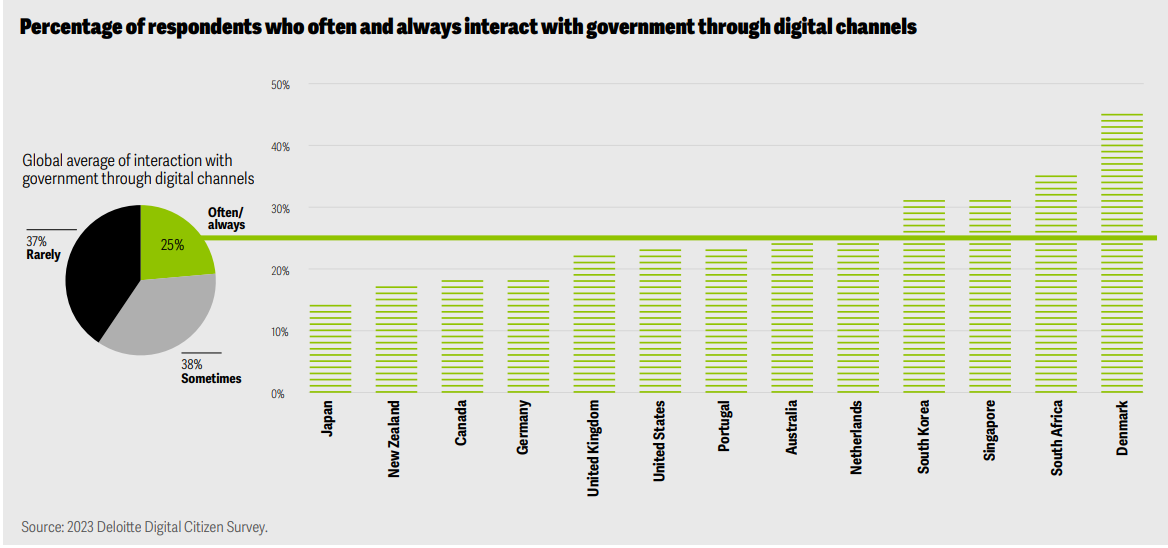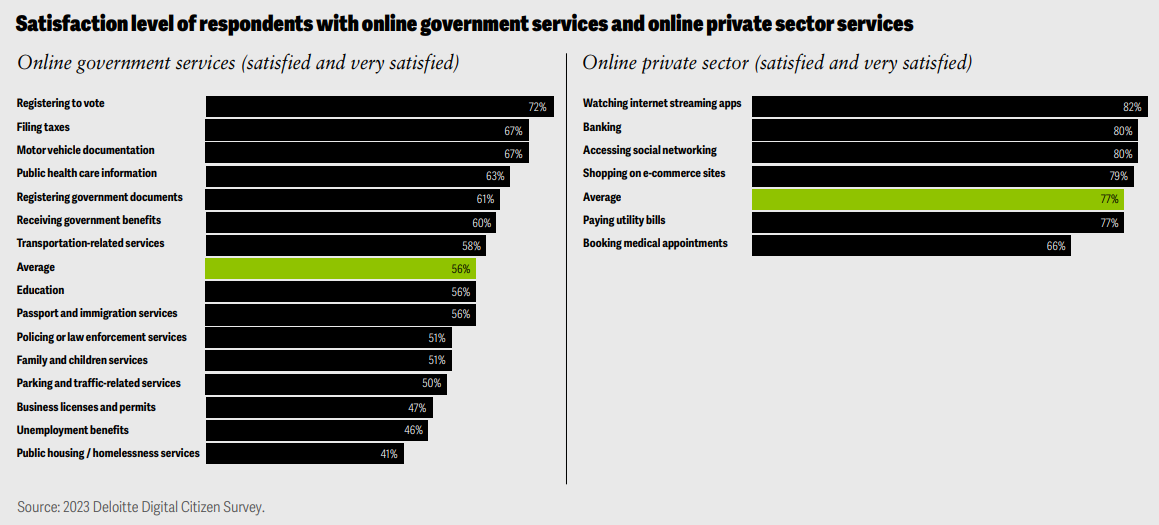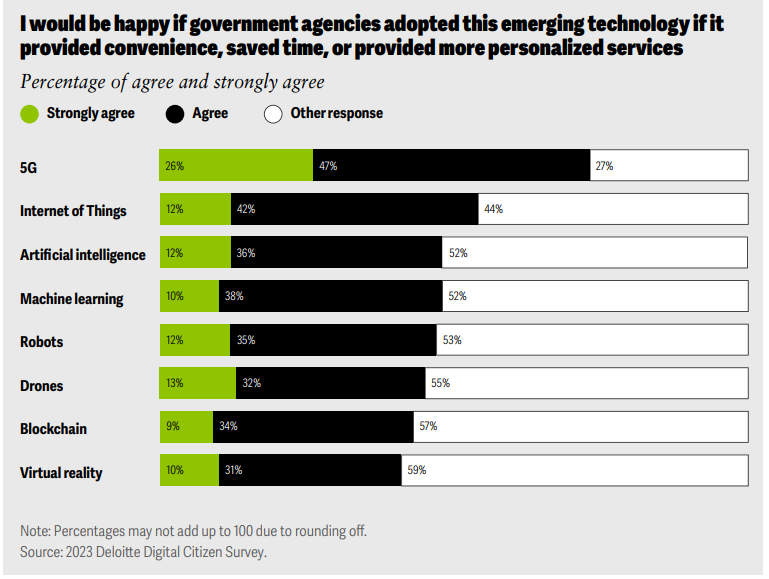
Photo: Yuri Arcurs | Dreamstime.com
Citizens reveal dissatisfaction with government digital services
02 May 2023
by Sarah Wray
Cities and government bodies have “a long journey ahead” to increase the availability of digital services and boost adoption, according to new research from Deloitte.
The consulting firm surveyed 5,800 people across 13 countries about their use of government digital services. This included 1,000 people in the US and the rest from countries including the UK, Japan, Singapore, Germany, Canada, Portugal, Australia, and the Netherlands.
Only 25 percent of respondents said they regularly interact with government through digital channels.

A key finding by the authors from the Deloitte Center for Government Insights was that satisfaction with government digital services globally lags “far behind” those of private sector services.
Satisfaction was lowest for public housing/homelessness services (41 percent), unemployment benefits (46 percent), and business licensing (47 percent). It was highest for registering to vote (72 percent), filing taxes (67 percent), and motor vehicle documentation (67 percent).

Trust
Most respondents said they prefer to interact with their city through websites but cited difficulties with navigation as the biggest barrier, followed by privacy and security concerns.
The research found significant differences between respondents who use digital services and those that don’t based on age, income, geography and education, raising concerns about accessibility and equity.
Respondents said they’re open to sharing data with government when there’s a clear benefit. This includes tracking diseases (77 percent), providing integrated and personalised social care services (75 percent), and “preventing crime” (70 percent).
The researchers also found that: “Globally respondents’ trust in government to protect their data is strongly correlated to their satisfaction with digital government services. Individuals who are satisfied with governments’ digital services also tend to place high trust in governments protecting their personal data.”
City takeaways
William Eggers, Executive Director, Deloitte Center for Government Insights, told Cities Today: “There’s a lot that government can do right now to improve the quality of digital services. For example, the three biggest challenges cited when accessing government services are areas that agency leaders can control – user experience, privacy and security.

“City leaders can also renew efforts to put residents’ life experiences at the heart of government services, rather than organising services by agency functions. Officials can start by conducting user research using new design tools such as ethnographic studies, journey mapping and persona development to understand individuals’ needs.”
Eggers urged local governments to adopt an omni-channel strategy:
After websites (49 percent), face-to-face interactions (36 percent) are the second-most preferred channel for individuals to interact with city governments. However, a significant number of people also prefer to use call centres (33 percent) and mobile applications (23 percent) to access municipal services.
“Developing and implementing an omni-channel strategy can help city governments deliver a consistent customer service experience for residents across multiple channels. A true omni-channel strategy meets constituents where they are (i.e. phone, web, in-person) while addressing barriers to access, like broadband connection gaps,” said Eggers.
In addition, he said: “Focus on improving services that residents have difficulty accessing.”
Public housing, business licensing, parking and traffic-related services, family and children services received relatively low satisfaction rates.
“City leaders can play a pivotal role in enhancing these services by focusing their user experience modernisation efforts on these specific areas,” Eggers commented.
Emerging technology
The research also assessed sentiment towards emerging technologies such as 5G, artificial intelligence and virtual reality. 5G came out as the top technology residents were keen for their governments to adopt if it provided benefits.

To address issues such as those raised in the report, dedicated digital services teams are increasingly common in cities and other levels of government. Local government examples include Baltimore, San Francisco and Milan.
New York recently launched the first phase of its MyCity site, aiming to make it easier for residents to access information and support across agencies. The initial focus is on childcare subsidies, with more to follow.
“New Yorkers deserve a better user experience when interacting with city government,” said Chief Technology Officer Matthew Fraser. “MyCity raises the bar for the way New York City delivers services and benefits.”







